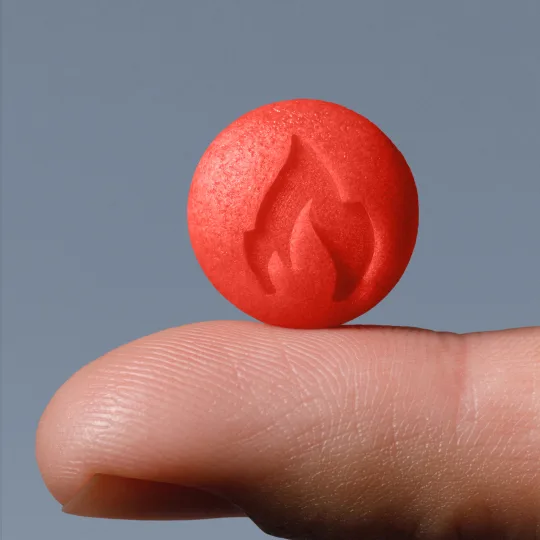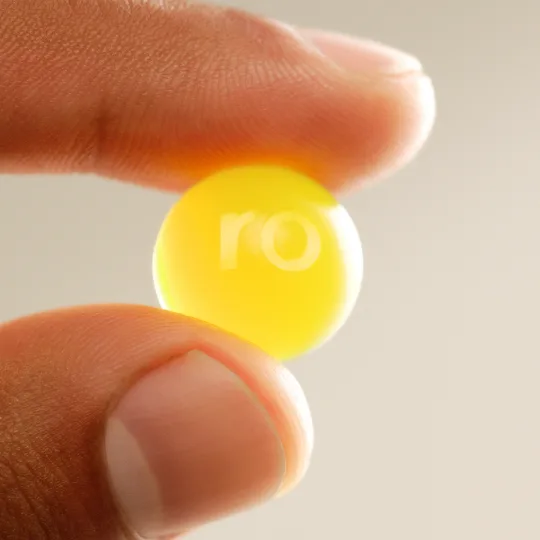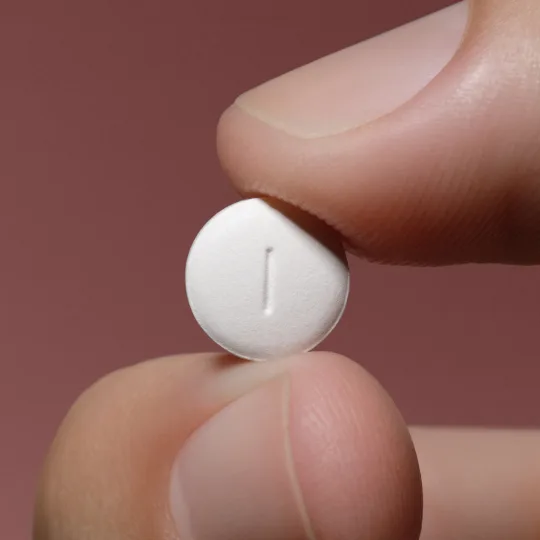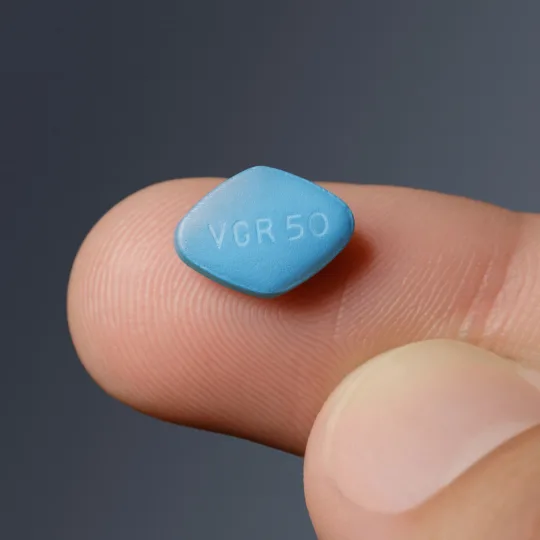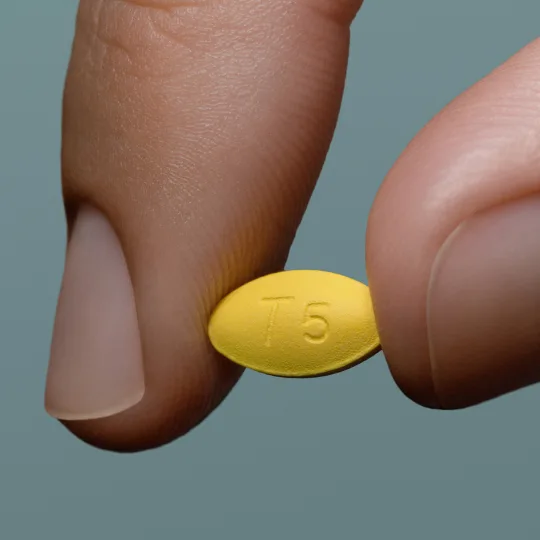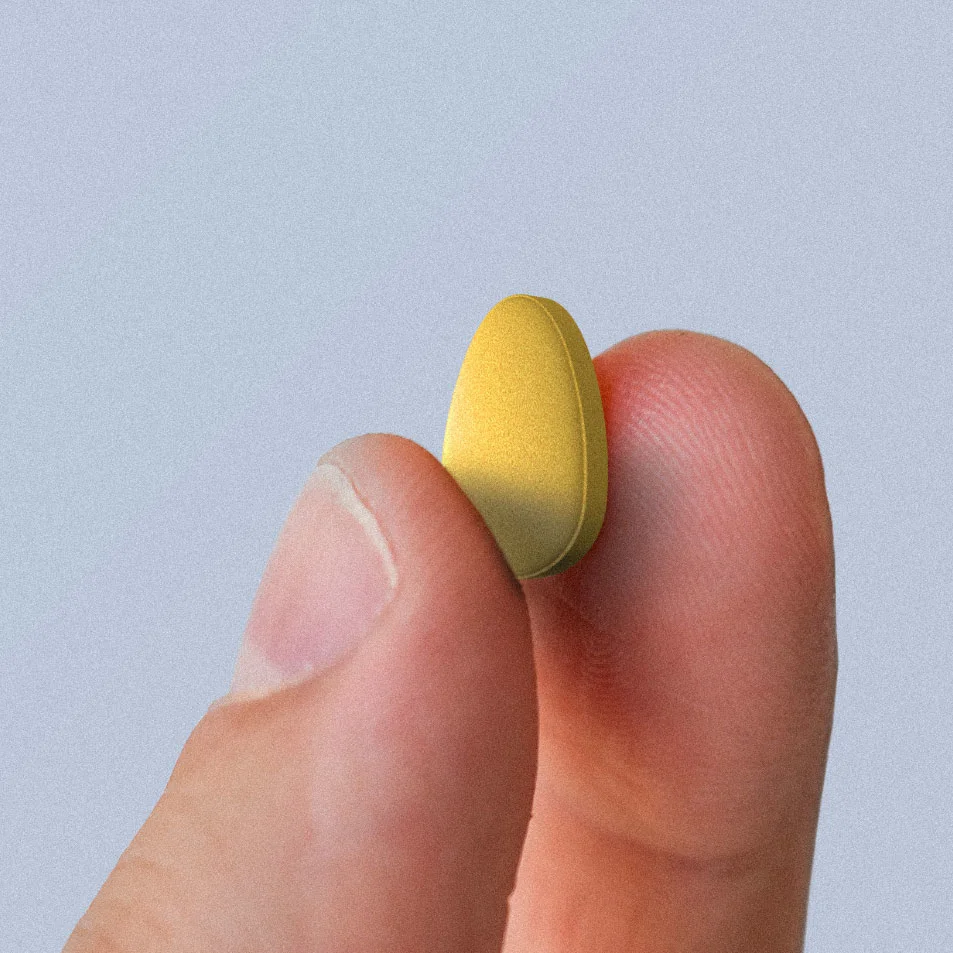Key takeaways
Occasionally, losing your erection during sex may be attributed to temporary factors, such as fatigue or excess alcohol consumption, and may not necessarily mean you have ED.
Losing an erection during sex more frequently may be due to a wide variety of factors, including vascular disease, low testosterone, psychological factors, obesity, or nerve damage, among other potential causes.
Options that can help in maintaining your erection during sex, depending on underlying factors, include lifestyle changes, oral medications, injections, and hormone replacement therapy.
Here's what we'll cover
Here's what we'll cover
Here's what we'll cover
Key takeaways
Occasionally, losing your erection during sex may be attributed to temporary factors, such as fatigue or excess alcohol consumption, and may not necessarily mean you have ED.
Losing an erection during sex more frequently may be due to a wide variety of factors, including vascular disease, low testosterone, psychological factors, obesity, or nerve damage, among other potential causes.
Options that can help in maintaining your erection during sex, depending on underlying factors, include lifestyle changes, oral medications, injections, and hormone replacement therapy.
Losing an erection during sex can come from stress, anxiety, fatigue, or relationship issues. It may also result from medical conditions, certain medications, or excessive alcohol use. Occasional erection loss is normal, but frequent issues may indicate erectile dysfunction (ED). If it happens often, speak to a healthcare provider to explore possible treatments.
If you find yourself asking, “Why am I losing my erection quickly?” then this guide is for you. We’ll tackle many possible reasons for losing an erection during sex and some available treatment options.
What causes loss of erection during the excitement phase?
Loss of erection during the excitement phase may be a sign of ED. Poor blood flow, nerve issues, hormonal imbalances, or mental health conditions may contribute to ED. While occasional problems are normal, frequent episodes may signal an underlying health concern.
Many people believe the loss of erection during the excitement phase is always a sign of ED, but that’s not always true. Some common reasons for losing an erection during sex include:
Psychological factors such as stress, anxiety, depression
Physical factors such as poor blood flow to the penis, hormonal imbalances
Lifestyle factors such as excessive alcohol consumption, smoking
Medications such as certain antidepressants, blood pressure drugs
In other words, it’s not always about your physical ability to get hard. Sometimes, your mental or emotional state plays a bigger role than you’d expect.
Maybe you had a long work week and just couldn’t shake the lingering stress come Friday night. Or perhaps you just started a new medication, and it comes with side effects that can impact sexual function. These things happen.
If it’s a one-off, it’s usually nothing to worry about. But if it’s repetitive, it’s worth checking in with a healthcare provider. They can help determine whether it’s more likely related to physical health, mental health, or both.
Have better sex with Ro
How erections work
If you’re asking, “Why does my erection go away so fast?” it helps to know how an erection works. When you’re sexually aroused, your brain sends signals down the spinal cord and nerves, triggering the release of a chemical messenger called cGMP.
This causes the smooth muscles in the penis to relax, which allows blood to flow in. At the same time, veins that usually drain blood away are compressed, helping the blood stay put. The result? An erection.
That means your brain, nervous system, hormones, blood vessels, and more all need to work together. If any part of that chain gets disrupted, even temporarily, it can affect your ability to stay hard.
The good news is that there are options. A provider can help you understand what’s going on and what you can do about it.
Why can’t I stay hard during sex? 14 reasons for losing an erection
Losing an erection during sex doesn’t always mean you have ED.
From everyday stress to cardiovascular health, here are 14 possible reasons you might lose an erection during sex.
1. Stress or anxiety
Stress can interrupt the signals between your brain and body and make it more challenging to get or maintain an erection during sex.
A study found that chronic stress can contribute to atherosclerosis, or the hardening and narrowing of arteries. The condition results in decreased blood flow throughout the body, including to the penis. Without adequate blood flow, it’s pretty much impossible to maintain an erection. Plus, being stressed doesn’t exactly put anyone in a sexy state of mind.
A scientific review found that up to 37% of people with an anxiety disorder such as post-traumatic stress disorder, obsessive-compulsive disorder, social anxiety disorder, or panic disorder also have ED.
Additionally, research has found anxiety disorders to be associated with an increased risk of cardiovascular disease, a well-known contributor to ED.
Whether you’re dealing with occasional stress or an ongoing mental health concern, stress or anxiety could affect your bedroom performance.
2. Depression
Depression can also play a role in losing an erection during sex. The connection between mental health and sexual function is well studied, and research shows that people with depression are more likely to experience ED.
One large review of nearly 50 studies found that the likelihood of having ED increases when depression is present. The review also found that the association goes both ways; the likelihood of developing depression when ED is present goes up, too.
Another review found that people with depression face about a 50%–70% higher risk of developing sexual dysfunction, which can include difficulty maintaining an erection.
Depression can create negative thought patterns that fuel performance anxiety and make it harder to stay aroused. It may also affect body systems that control stress and hormones, which can interfere with normal sexual function.
3. Using tobacco
Smoking is tied to many health problems, and erections are no exception. People who smoke are significantly more likely to have ED—studies show the risk can be up to three times higher compared to non-smokers.
Why? Smoking can damage blood vessels and make it harder for blood to flow properly to the penis, which is key for getting and keeping an erection.
And it’s not just cigarettes: Another clinical study on vaping found people who use e-cigarettes are more than twice as likely to experience ED as those who have never used.
4. Drinking alcohol excessively
Having a couple of cocktails or glasses of wine before sexual activity is common. Unfortunately, though, the dreaded whiskey dick (or alcohol-related ED) is also common.
If you occasionally lose your erection during sex because you’ve had too much to drink, it’s probably not cause for concern. You just might want to keep that in mind next time you think you’re going to get lucky.
Alcohol dependence or heavy drinking,* on the other hand, can be an issue both in and out of the bedroom, as it’s a disease that can affect physical and mental health.
In a clinical study of 100 patients with alcohol dependence, 62% experienced sexual dysfunction, 36% had difficulty achieving an erection, and 34% had difficulty maintaining an erection.
* Heavy drinking is considered 15 or more standard drinks per week for men, where a standard drink equals one 12-ounce regular beer (5% alcohol), one 5-ounce glass of wine (12% alcohol), or one 1.5-ounce shot of liquor/spirits (40% alcohol).
5. Using recreational drugs or steroids
While more studies are needed to confirm how (or if) cannabis use directly impacts erections, some research suggests that ED may be more common among cannabis users. One review found that ED could be more than twice as likely in people who use cannabis compared to those who don’t.
We still don’t fully understand why this might happen. A theory is that cannabis may affect the endocannabinoid system, which is a network of receptors in the brain and body involved in regulating mood, stress, and sexual function.
Using steroids, especially anabolic steroids, can affect your hormone levels and has been linked to issues getting an erection. Over time, taking these drugs may make it harder for your body to function normally in the bedroom.
Other recreational drugs, like opioids, can also affect your ability to get or keep an erection.
6. Eating poorly
As the saying goes, everything should be enjoyed in moderation. That includes your favorite foods, so occasionally digging into a burger and fries shouldn’t be cause for concern.
But regularly overindulging in certain items like red meat and processed foods could have an impact on erectile function, as they can cause issues with blood flow and inflammation.
Diets high in processed foods and unhealthy fats can lead to plaque buildup in the arteries, restricting circulation throughout the body (including to the penis). This can make it harder to maintain an erection.
This diet can also raise blood pressure and contribute to conditions like diabetes and heart disease over time, which are major risk factors for ED.
7. Carrying excess weight (obesity)
If you’re losing your erection during sex, it could even be related to your weight. One study found that 73% of those with abdominal obesity had some degree of ED. Another study found that those with obesity had three times greater risk of sexual dysfunction compared to the general population.
Extra weight can affect erections in a couple of ways. Carrying excess weight can damage blood vessels and reduce blood flow to the penis, making it harder to stay firm. Obesity is also linked to lower testosterone levels, which can decrease sexual desire and function.
8. Medication
ED is a known side effect of many prescription and over-the-counter medications. Common culprits include:
Most antidepressants, especially SSRIs (selective serotonin reuptake inhibitors)
Cimetidine (used for heartburn)
Ketoconazole (an antifungal medication)
Spironolactone (a diuretic that affects hormone levels)
Sympathetic blockers, such as methyldopa, clonidine, and guanethidine
Thiazide diuretics (used to manage blood pressure)
Stimulants, such as amphetamines and Adderall
Other antihypertensives, though the risk varies
Not all blood pressure medications carry the same risk. ACE inhibitors and calcium channel blockers are less likely to cause ED. Beta-blockers may have a mild effect, while alpha-blockers have actually been shown to improve erectile function in some cases.
If you suspect a medication might be affecting your sex life, talk to your healthcare provider about alternatives or adjustments. Never stop a prescribed drug without medical guidance.
9. Vascular disease
Vascular diseases—conditions that affect blood vessels and circulation (for example, high blood pressure, atherosclerosis)—are a major cause of ED, so much so that there’s a term for ED caused by these conditions: vasculogenic ED.
When blood flow is reduced because of narrowed or hardened vessels, the body has more difficulty directing blood to the penis. This can make it harder to maintain an erection during sex, not to mention achieve one in the first place.
10. Nerve damage and neurological issues
ED can also result from neurological issues. Neurogenic ED occurs when nerve damage disrupts the signals needed to trigger an erection.
Since the nervous system controls communication between the brain, spinal cord, and penis, conditions like diabetes, multiple sclerosis, Parkinson’s disease, and spinal cord injuries can interfere with this process.
Additionally, surgery in the pelvic region, such as prostate or colorectal procedures, can sometimes damage nerves that affect the area, making it harder to achieve or maintain an erection.
11. Injuries
Injuries, such as a pelvic or penile fracture or radical pelvic surgery, are another potential cause for losing your erection.
As is the case with nerve damage, injuries that disrupt the body’s ability to send the correct signals can result in difficulty maintaining erections. Reduced blood flow due to an injury can also be a culprit.
If you’ve sustained an injury and are now unable to maintain erections, you should seek medical care to avoid complications.
12. Hypogonadism / low testosterone
Hypogonadism is a condition in which the body produces low (or no) sex hormones. Biological males with hypogonadism often have low testosterone levels and may experience sexual dysfunction as a result of the condition.
Testosterone replacement therapy (TRT) may be an option for some people if low testosterone is contributing to ED. While it doesn’t always cause ED on its own, low testosterone is associated with chronic medical conditions, including heart disease and diabetes, that can also affect erectile function. Some research shows that low testosterone can also impair the ability of medications to help treat ED.
Speak with a healthcare provider to see if you need testing for low testosterone, because treatment options are available and may help improve your quality of life if you are eligible.
13. Cardiovascular disease
If you’re losing an erection during the excitement phase, blood flow may be part of the issue. Heart and blood vessel health play a big role in erections. Problems with circulation, such as heart disease, high blood pressure, or diabetes, can make it harder for blood to reach the penis.
One reason is that these conditions can damage the inner lining of blood vessels, making them less able to relax and let blood flow in. Hardening of the arteries (atherosclerosis) can also narrow vessels throughout the body, including those that supply the penis.
If you have — or are at risk for — heart disease, it’s important to talk with a healthcare provider. They can help you manage your heart health and your sexual health together.
14. Diabetes
Diabetes is well known to cause issues with blood sugar, but it can also wreak havoc on sexual dysfunction. Over time, diabetes can damage blood vessels, including those that supply blood to the penis, which can interfere with your ability to get and maintain an erection.
The condition can also lead to nerve damage, which can negatively impact erections.
Does losing an erection during sex mean I have ED?
Losing an erection during sex can be frustrating, but it doesn’t always mean you have ED.
Erections can go away fast due to stress, anxiety, health issues, or certain medications. Common causes include poor blood flow, performance anxiety, or side effects from prescription drugs. Frequent issues may signal ED and should be evaluated by a healthcare provider. Treatment may include lifestyle changes, therapy, or medications depending on the underlying cause.
It’s normal to have an off day once in a while. But if it happens regularly, it may be a sign of something more ongoing.
Watch for other symptoms of ED, which can include trouble getting an erection at all or a noticeable drop in sexual desire. If you’re frequently losing erections during sex, or if these issues are affecting your confidence or relationships, it may be worth checking in with a healthcare provider.
And if you ever have painful erections, don’t ignore them. This can be a sign of an infection or a condition like Peyronie’s disease, and it’s important to get it evaluated.
How to stay hard during sex: top 7 tips
Instead of stressing, try the tips below to help support more consistent erections and reduce performance pressure:
1. Take a pause and reset. | Losing an erection mid-sex can feel frustrating, but taking a short break can help. Try shifting your focus to other forms of intimacy, like oral sex, using your hands, or incorporating a toy. Reducing performance pressure in the moment can help you feel more relaxed, which may make it easier to get aroused again. |
2. Check in with your body and environment. | Stress, alcohol, and new medications can affect sexual performance. If you’ve had a long day or drank more than usual, those factors might be playing a role. It may help to create a low-pressure, comfortable environment and check in with how you’re feeling both physically and emotionally. |
3. Communicate with your partner. | Talking and being open with your partner about what’s happening can relieve some pressure when you feel like you need to perform. You might find that exploring different types of intimacy together can make the experience feel less stressful and more connected. |
4. Focus on healthy habits. | Lifestyle changes around diet, exercise, and sleep hygiene may improve overall sexual function. Supporting your heart and blood flow can also encourage healthy erections. Consider incorporating foods that boost nitric oxide. |
5. Limit alcohol and tobacco. | If you notice it's harder to stay hard after drinking, it may help to reduce your alcohol consumption and see if that helps. Smoking is also closely linked to erectile issues, and some people see improvements soon after quitting. If you’re having trouble cutting back, talk to a provider about tools that can help. |
6. Consider a cock ring (with care). | A cock ring is a device worn at the base of the penis to help maintain an erection by slowing blood flow out of the area. It may be helpful if you’re losing your erection during sex. Just be sure it’s comfortable. A ring that’s too tight or worn too long can cause injury. If you’re unsure about how to use one safely, ask a healthcare provider. |
7. Consult a therapist or mental health professional. | A therapist or psychiatrist can help you find strategies or medications that make it easier for you to manage anxiety or stress, which in turn can make it easier to maintain an erection. They can help you figure out whether it’s physical, psychological, or both, and work with you to find a treatment plan that fits. |
How to treat erectile dysfunction (ED)
If you find you’re frequently losing an erection during sex, consult your healthcare provider. While there are a variety of ED treatments — like prescription medications, injections and suppositories, devices and surgery, and lifestyle modifications — the best one will depend on the root cause of your condition.
Here are some commonly recommended options by healthcare providers (and backed by research).
Prescription medications
The first line of treatment for ED tends to be phosphodiesterase-5 (PDE-5) inhibitors,* a drug class that includes Viagra (sildenafil), Cialis (tadalafil), and vardenafil.
PDE-5 inhibitors work in part by relaxing blood vessels and increasing blood flow. They’re shown to be highly effective, with an overall success rate of up to 76%.
To give these medications a chance, you should work closely with your healthcare provider and adjust the timing and dosage as needed to optimize your erectile function and minimize side effects.
In addition to these oral pills, you can find some PDE-5 inhibitors in other formulations. Ro Sparks, for example, is a sublingual (under the tongue) treatment that combines sildenafil and tadalafil, the active ingredients in Viagra and Cialis.
Another option is Ro’s Daily Rise Gummies, a low-dose daily approach to treating ED. These once-a-day, fruit-flavored gummies contain tadalafil and can help increase sexual spontaneity.
Though these last two formulations are not US Food and Drug Administration (FDA)-approved, they contain active ingredients that have been FDA-approved for ED.
ED injections and suppositories
If oral medications aren’t effective, ED can also be treated with localized therapies like injections or suppositories. These treatments work by directly increasing blood flow to the penis, often with faster or more targeted results.
Penile injections: This approach involves injecting medication into the base or side of the penis to help relax smooth muscle and allow blood to flow in.
The most commonly used drug is prostaglandin E1, but other drugs may also be prescribed. These options can be highly effective, even for people who haven’t responded well to pills.
Intraurethral suppositories (MUSE): MUSE, short for Medicated Urethral System for Erection, uses a tiny pellet of alprostadil inserted into the urethra with a special applicator. The medication dissolves and increases blood flow locally. As of June 2024, it is no longer available in the U.S.
Effectiveness can vary from person to person, and some may experience mild discomfort or burning during use. These therapies may be good options if you’re looking for non-pill ED treatments.
Devices and surgery
A penis pump or vacuum erection device is a non-surgical form of treatment consisting of a plastic chamber in which you insert your penis. It’s attached to a hand or battery-powered pump that creates suction to increase blood flow to the penis.
These options can have limitations such as decreased spontaneity, inconvenience, and discomfort or even pain, and should be used with caution.
Lifestyle habits
The same tactics of promoting a healthy lifestyle as ways to stay hard during sex are also commonly recommended for ED.
This means that managing stress levels, limiting alcohol consumption, and quitting drug and tobacco use can potentially help reduce the impact of ED.
Other key lifestyle changes that double as ED treatment include:
Regularly exercising: Research has found that people who exercise regularly, especially with moderate-to-vigorous aerobic workouts, have significantly improved erectile function. Getting enough physical movement can also boost the production of nitric oxide, potentially increase testosterone levels as part of a healthy lifestyle, and improve circulation, all of which are key to getting and maintaining erections.
Eating a balanced diet: While no one food can fix ED, consuming a variety of nutrient-dense foods, such as lean proteins, whole grains, and plenty of fresh produce, can help lower various risk factors for ED, including type 2 diabetes, heart disease, and obesity.
Prioritizing sleep: Not getting enough REM and deep sleep is linked to a higher risk of ED. Prioritize getting consistent, high-quality sleep to help support healthy sexual function.
Bottom line: how to stay hard during sex
There are plenty of reasons you might lose your erection during sex. If this happens to you only occasionally, it’s probably nothing to worry about. But if it’s happening more frequently, it might be time to consult a healthcare provider.
Keep these things in mind:
Many sexually active people will lose an erection mid-sex at some point. If it happens occasionally, you shouldn’t need to worry. It could be due to fatigue, excessive alcohol consumption, or other factors that don’t necessarily require medical intervention.
Frequently losing an erection during sex could be due to different factors. Consulting a healthcare provider can help you identify the root causes and find effective treatment. Once it seems like erectile dysfunction is happening frequently enough to bother you, it’s important to seek medical attention.
Being open with your partner can relieve some of the anxiety you might feel if you lose your erection during sex. If they understand what’s happening, they’ll likely be more open to solutions like using a cock ring or engaging in other forms of intimacy, like oral sex.
If you do have ED, many treatment options are available. They might include lifestyle changes (think: regularly exercising, eating a nutritious diet, getting ample sleep) or prescription medications like Viagra or Cialis. Talk to your healthcare provider about options.
Why am I losing my erection during sex? Frequently asked questions (FAQs)
Why am I unable to keep an erection?
Inability to keep an erection can typically result from blood flow problems, nerve damage, or psychological factors.
Conditions like diabetes, heart disease, and high blood pressure can reduce blood flow to the penis, while nerve damage from surgery can disrupt the signals needed for erections. Psychological stress, anxiety, and depression can also interfere with your ability to maintain an erection, and certain medications may cause this as a side effect.
Why can't I stay hard during sex?
Trouble staying hard during sex may be caused by stress, health issues, or medications. ED is multifactorial and can come from poor blood flow, nerve problems, and/or performance anxiety. Conditions like diabetes, heart disease, or depression can also interfere with erections. If issues with erections happen often, consult a healthcare provider for diagnosis and treatment options.
How can I fix a weak erection?
Weak erections can often be improved through lifestyle changes and medical treatments. Regular exercise, maintaining a healthy weight, limiting alcohol, and quitting smoking can improve blood flow and strengthen erections.
Managing underlying health conditions like diabetes or high blood pressure with your healthcare provider can also improve sexual health, and counseling may help if stress or relationship issues contribute to the problem.
If lifestyle changes aren't enough, FDA-approved medications like Viagra or Cialis can help by increasing blood flow to the penis. It’s important to understand how these medications work and what to expect when taking them. These medications come with their own risks and benefits. Speak with your healthcare provider for more information.
Why do I suddenly lose my ability to get an erection?
Sudden loss of erection ability can result from new medications, health condition changes, or psychological factors. Drugs like antidepressants commonly result in erectile dysfunction as a side effect, while new diagnoses like diabetes or heart disease can impact blood flow or nerve function.
Major life stress, relationship problems, depression, injury to the pelvis or spine, or hormonal shifts can also cause sudden changes in sexual function. If you've experienced a sudden change in erectile function, speak with a healthcare provider to identify potential causes and discuss treatment options.
At what age do men stop getting erections?
Men do not stop getting erections at a specific age, but erectile issues can increase over time. By their 40s, about 40% experience some form of ED, rising by approximately 10% each decade. This can be multifactorial, and can be attributed to age-related changes in the penis’s vascular smooth muscle as well as blocked arteries.
While aging affects erections, the appropriate medical attention, treatment, and lifestyle changes can slow or reverse these changes.
DISCLAIMER
If you have any medical questions or concerns, please talk to your healthcare provider. The articles on Health Guide are underpinned by peer-reviewed research and information drawn from medical societies and governmental agencies. However, they are not a substitute for professional medical advice, diagnosis, or treatment.
Viagra Important Safety Information: Read more about serious warnings and safety info.
Cialis Important Safety Information: Read more about serious warnings and safety info.
References
Acharya, B., Sahu, P. K., Behera, A., et al. (2025). Cannabinoids and the male reproductive system: Implications of endocannabinoid signaling pathways. Maturitas, 192, 108156. doi: 10.1016/j.maturitas.2024.108156. Retrieved from https://pubmed.ncbi.nlm.nih.gov/39602858/
Acharya, R. K., Panigrahi, S., Samani, M. J., et al. (2022). Prevalence and Pattern of Sexual Dysfunction in Male Patients with Alcohol Dependence. Addiction & Health, 14(3), 192–197. doi: 10.34172/ahj.2022.1335. Retrieved from https://pmc.ncbi.nlm.nih.gov/articles/PMC9743820/
Alhathal, N., Elshal, A. M., & Carrier, S. (2012). Synergetic effect of testosterone and phophodiesterase-5 inhibitors in hypogonadal men with erectile dysfunction: A systematic review. Canadian Urological Association journal = Journal de l'Association des Urologues du Canada, 6(4), 269–274. doi: 10.5489/cuaj.11291. Retrieved from https://pmc.ncbi.nlm.nih.gov/articles/PMC3433544/
Allen, M. S., Wood, A. M., & Sheffield, D. (2023). The Psychology of Erectile Dysfunction. Current Directions in Psychological Science, 32(6), 487–493. doi: 10.1177/09637214231192269. Retrieved from https://journals.sagepub.com/doi/10.1177/09637214231192269
Anand, S. S., Hawkes, C., de Souza, R. J., et al. (2015). Food Consumption and its Impact on Cardiovascular Disease: Importance of Solutions Focused on the Globalized Food System: A Report From the Workshop Convened by the World Heart Federation. Journal of the American College of Cardiology, 66(14), 1590–1614. doi: 10.1016/j.jacc.2015.07.050. Retrieved from https://pmc.ncbi.nlm.nih.gov/articles/PMC4597475/
Atlantis, E. & Sullivan, T. (2012). Bidirectional association between depression and sexual dysfunction: a systematic review and meta-analysis. Journal of Sexual Medicine, 9(6), 1497-507. doi: 10.1111/j.1743-6109.2012.02709.x. Retrieved from https://pubmed.ncbi.nlm.nih.gov/22462756/
Azevedo, R. A., Gualano, B., Teixeira, T. A., et al. (2024). Abusive use of anabolic androgenic steroids, male sexual dysfunction and infertility: an updated review. Frontiers in Toxicology, 6, 1379272. doi: 10.3389/ftox.2024.1379272. Retrieved from https://pmc.ncbi.nlm.nih.gov/articles/PMC11070513/
Cao, S., Yin, X., Wang, Y., et al. (2013). Smoking and risk of erectile dysfunction: Systematic review of observational studies with meta-analysis. PloS One, 8(4), e60443. doi: 10.1371/journal.pone.0060443. Retrieved from https://pmc.ncbi.nlm.nih.gov/articles/PMC3616119/
Celano, C. M., Daunis, D. J., Lokko, H. N., et al. (2016). Anxiety Disorders and Cardiovascular Disease. Current Psychiatry Reports, 18(11), 101. doi: 10.1007/s11920-016-0739-5. Retrieved from https://pmc.ncbi.nlm.nih.gov/articles/PMC5149447/
Chou, N. H., Huang, Y. J., Jiann, B. P. (2015). The Impact of Illicit Use of Amphetamine on Male Sexual Functions. The Journal of Sexual Medicine, 12(8), 1694–1702. doi: 10.1111/jsm.12926. Retrieved from https://pubmed.ncbi.nlm.nih.gov/26147855/
Corona, G., Rastrelli, G., Filippi, S., et al. (2014). Erectile dysfunction and central obesity: an Italian perspective. Asian Journal of Andrology, 16(4), 581–591. doi: 10.4103/1008-682X.126386. Retrieved from https://pmc.ncbi.nlm.nih.gov/articles/PMC4104087/
De Leonardis, F., Colalillo, G., Finazzi Agrò, E., et al. (2022). Endothelial Dysfunction, Erectile Deficit and Cardiovascular Disease: An Overview of the Pathogenetic Links. Biomedicines, 10(8), 1848. doi: 10.3390/biomedicines10081848. Retrieved from https://pubmed.ncbi.nlm.nih.gov/36009395/
Dean, R. C. & Lue, T. F. (2005). Physiology of penile erection and pathophysiology of erectile dysfunction. The Urologic Clinics of North America, 32(4), 379–v. doi: 10.1016/j.ucl.2005.08.007. Retrieved from https://pmc.ncbi.nlm.nih.gov/articles/PMC1351051/
Defeudis, G., Mazzilli, R., Tenuta, M., et al. (2022). Erectile dysfunction and diabetes: A melting pot of circumstances and treatments. Diabetes/Metabolism Research and Reviews, 38(2), e3494. doi: 10.1002/dmrr.3494. Retrieved from https://pmc.ncbi.nlm.nih.gov/articles/PMC9286480/
Dhaliwal, A. & Gupta, M. (2023). PDE5 Inhibitors. StatPearls. Retrieved on Aug. 4, 2025 from https://www.ncbi.nlm.nih.gov/books/NBK549843/
Duca, Y., Calogero, A. E., Cannarella, R., et al. (2019). Erectile dysfunction, physical activity and physical exercise: Recommendations for clinical practice. Andrologia, 51(5), e13264. doi: 10.1111/and.13264. Retrieved from https://pubmed.ncbi.nlm.nih.gov/30873650/
El-Shahawy, O., Shah, T., Obisesan, O. H., et al. (2022). Association of E-Cigarettes With Erectile Dysfunction: The Population Assessment of Tobacco and Health Study. American Journal of Preventive Medicine, 62(1), 26–38. doi: 10.1016/j.amepre.2021.08.004. Retrieved from https://pubmed.ncbi.nlm.nih.gov/34922653/
Ferrini, M. G., Gonzalez-Cadavid, N. F., & Rajfer, J. (2017). Aging related erectile dysfunction-potential mechanism to halt or delay its onset. Translational Andrology and Urology, 6(1), 20–27. doi: 10.21037/tau.2016.11.18. Retrieved from https://pmc.ncbi.nlm.nih.gov/articles/PMC5313305/
Fillo, J., Breza, J., Levčíkova, M., et al. (2012). Occurrence of erectile dysfunction, testosterone deficiency syndrome and metabolic syndrome in patients with abdominal obesity. Where is a sufficient level of testosterone? International Urology and Nephrology, 44(4), 1113–1120. doi: 10.1007/s11255-012-0132-1. Retrieved from https://pubmed.ncbi.nlm.nih.gov/22315154/
Fujita, N., Okamoto, T., Yamamoto, H., et al. (2024). Association between sex hormones and erectile dysfunction in men without hypoandrogenism. Scientific Reports, 14(1), 13433. doi: 10.1038/s41598-024-64339-3. Retrieved from https://pubmed.ncbi.nlm.nih.gov/38862562/
Hadi, H. A., Carr, C. S., & Al Suwaidi, J. (2005). Endothelial dysfunction: cardiovascular risk factors, therapy, and outcome. Vascular Health and Risk Management, 1(3), 183–198. Retrieved from https://pmc.ncbi.nlm.nih.gov/articles/PMC1993955/
Haring, B., Wang, W., Fretts, A., et al. (2017). Red meat consumption and cardiovascular target organ damage (from the Strong Heart Study). Journal of Hypertension, 35(9), 1794–1800. doi: 10.1097/HJH.0000000000001385. Retrieved from https://pmc.ncbi.nlm.nih.gov/articles/PMC5728368/
Herman, J. P., McKlveen, J. M., Ghosal, S., et al. (2016). Regulation of the Hypothalamic-Pituitary-Adrenocortical Stress Response. Comprehensive Physiology, 6(2), 603–621. doi: 10.1002/cphy.c150015. Retrieved from https://pmc.ncbi.nlm.nih.gov/articles/PMC4867107/
Hoyland, K., Vasdev, N., & Adshead, J. (2013). The use of vacuum erection devices in erectile dysfunction after radical prostatectomy. Reviews in Urology, 15(2), 67–71. Retrieved from https://pmc.ncbi.nlm.nih.gov/articles/PMC3784970/
Javaroni, V. & Neves, M. F. (2012). Erectile dysfunction and hypertension: impact on cardiovascular risk and treatment. International Journal of Hypertension, 2012, 627278. doi: 10.1155/2012/627278. Retrieved from https://pubmed.ncbi.nlm.nih.gov/22649713/
Kaplan-Marans, E., Sandozi, A., Martinez, M., et al. (2022). Medications Most Commonly Associated With Erectile Dysfunction: Evaluation of the Food and Drug Administration National Pharmacovigilance Database. Sexual Medicine, 10(5), 100543. doi: 10.1016/j.esxm.2022.100543. Retrieved from https://pubmed.ncbi.nlm.nih.gov/35843193/
Kovac, J. R., Labbate, C., Ramasamy, R., et al. (2015). Effects of cigarette smoking on erectile dysfunction. Andrologia, 47(10), 1087–1092. doi: 10.1111/and.12393. Retrieved from https://pmc.ncbi.nlm.nih.gov/articles/PMC4485976/
Kumagai, H., Yoshikawa, T., Zempo-Miyaki, A., et al. (2018). Vigorous Physical Activity is Associated with Regular Aerobic Exercise-Induced Increased Serum Testosterone Levels in Overweight/Obese Men. Hormone and Metabolic Research, 50(1), 73-79. doi: 10.1055/s-0043-117497. Retrieved from https://pubmed.ncbi.nlm.nih.gov/28934816/
Leslie, S. W. & Sooriyamoorthy, T. (2025). Erectile dysfunction. StatPearls. Retrieved on Aug. 4, 2025 from https://www.ncbi.nlm.nih.gov/books/NBK562253/
Liu, Q., Zhang, Y., Wang, J., et al (2018). Erectile Dysfunction and Depression: A Systematic Review and Meta-Analysis. The Journal of Sexual Medicine, 15(8), 1073–1082. doi: 10.1016/j.jsxm.2018.05.016. Retrieved from https://pubmed.ncbi.nlm.nih.gov/29960891/
Moon, K. H., Park, S. Y., & Kim, Y. W. (2019). Obesity and Erectile Dysfunction: From Bench to Clinical Implication. The World Journal of Men's Health, 37(2), 138–147. doi: 10.5534/wjmh.180026. Retrieved from https://pmc.ncbi.nlm.nih.gov/articles/PMC6479091/
Padmanabhan, A. K. (2020). Role of stress in erectile dysfunction: A review. ARC Journal of Urology, 5(1), 1–2. doi: 10.20431/2456-060X.0501001. Retrieved from https://www.arcjournals.org/pdfs/aju/v5-i1/1.pdf
Panchatsharam, P. K., Durland, J., & Zito, P. M. (2023). Physiology, Erection. StatPearls. Retrieved on Aug. 4, 2025 from https://www.ncbi.nlm.nih.gov/books/NBK513278/
Pizzol, D., Demurtas, J., Stubbs, B., et al. (2019). Relationship Between Cannabis Use and Erectile Dysfunction: A Systematic Review and Meta-Analysis. American Journal of Men's Health, 13(6), 1557988319892464. doi: 10.1177/1557988319892464. Retrieved from https://pmc.ncbi.nlm.nih.gov/articles/PMC6893937/
Rastrelli, G., Corona, G., & Maggi, M. (2020). Both comorbidity burden and low testosterone can explain symptoms and signs of testosterone deficiency in men consulting for sexual dysfunction. Asian Journal of Andrology, 22(3), 265–273. doi: 10.4103/aja.aja_61_19. Retrieved from https://pmc.ncbi.nlm.nih.gov/articles/PMC7275801/
Sangkum, P., Levy, J., Yafi, F. A., et al. (2015). Erectile dysfunction in urethral stricture and pelvic fracture urethral injury patients: diagnosis, treatment, and outcomes. Andrology, 3(3), 443–449. doi: 10.1111/andr.12015. Retrieved from https://pubmed.ncbi.nlm.nih.gov/25784590/
Silva, A. B., Sousa, N., Azevedo, L. F., et al. (2017). Physical activity and exercise for erectile dysfunction: systematic review and meta-analysis. British Journal of Sports Medicine, 51(19), 1419–1424. doi: 10.1136/bjsports-2016-096418. Retrieved from https://pubmed.ncbi.nlm.nih.gov/27707739/
Snetselaar, L. G., de Jesus, J. M., DeSilva, D. M., et al. (2021). Dietary Guidelines for Americans, 2020-2025: Understanding the Scientific Process, Guidelines, and Key Recommendations. Nutrition Today, 56(6), 287–295. doi: 10.1097/NT.0000000000000512. Retrieved from https://pmc.ncbi.nlm.nih.gov/articles/PMC8713704/
Velurajah, R., Brunckhorst, O., Waqar, M., et al. (2021). Erectile dysfunction in patients with anxiety disorders: A systematic review. International Journal of Impotence Research, 34(2), 177–186. doi: 10.1038/s41443-020-00405-4. Retrieved from https://pubmed.ncbi.nlm.nih.gov/33603242/
Wu, X., Zhang, Y., Zhang, W., et al. (2022). The Association Between Erectile Dysfunction and Sleep Parameters: Data from a Prospective, Controlled Cohort. The Journal of Sexual Medicine, 19(9), 1387–1396. doi: 10.1016/j.jsxm.2022.07.002. Retrieved from https://pubmed.ncbi.nlm.nih.gov/35909074/
Xiong, Y., Zhang, F., Zhang, Y., et al (2024). Insights into modifiable risk factors of erectile dysfunction, a wide-angled Mendelian Randomization study. Journal of Advanced Research, 58, 149–161. doi: 10.1016/j.jare.2023.05.008. Retrieved from https://pubmed.ncbi.nlm.nih.gov/37236543/
Yafi, F. A., Jenkins, L., Albersen, M., et al. (2016). Erectile dysfunction. Nature Reviews, 2, 16003. doi: 10.1038/nrdp.2016.3. Retrieved from https://pmc.ncbi.nlm.nih.gov/articles/PMC5027992/
Yannas, D., Frizza, F., Vignozzi, L., et al. (2021). Erectile Dysfunction Is a Hallmark of Cardiovascular Disease: Unavoidable Matter of Fact or Opportunity to Improve Men's Health? Journal of Clinical Medicine, 10(10), 2221. doi: 10.3390/jcm10102221. Retrieved from https://pubmed.ncbi.nlm.nih.gov/34065601/
Yao, B. C., Meng, L. B., Hao, & M. L. (2019). Chronic stress: a critical risk factor for atherosclerosis. The Journal of International Medical Research, 47(4), 1429–1440. doi: 10.1177/0300060519826820. Retrieved from https://pmc.ncbi.nlm.nih.gov/articles/PMC6460614/


